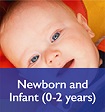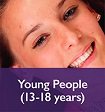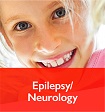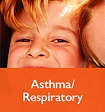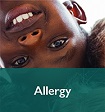Allergy
Allergy occurs when your immune system overreacts to non-threatening substances. Substances that cause allergic reactions are called allergens. Any substance can be an allergen including insects, medications, foods, dust mites, grass and pollen. They can enter the body through your airway, skin, foods that you eat or medications that you take.
When people are affected by allergens their immune systems can cause them to react in different ways. Often these reactions affect the nose, eyes, sinus and throat. The severity of allergic reactions can vary from mild (hay fever) to severe and life-threatening (anaphylaxis).
Who we care for
Many children and young people with allergies are managed by their general practitioner (GP). Your GP will refer you to a paediatrician or specialist allergy clinic if they feel more specific testing or treatment is required. Symptoms that often need a referral to a paediatrician or allergy clinic include severe eczema, food or environmental allergies, or to investigate significant events or reactions that may be allergy related.
Paediatric allergy services are based at the Royal Hobart Hospital, Launceston General Hospital, North West Regional Hospital (Burnie) and Mersey Community Hospital (Latrobe). Depending on the outcome of assessment in clinic your child may be referred for food challenges, skin prick testing, lung function testing or blood tests.
Your allergy team usually begins with
| Child (you) and family/caregivers | Children, their families and caregivers are valued members of our health care team. You have a unique view on how your family works and the impact that behavioural and developmental challenges have on your everyday life. We create management plans with your input. | |
| General practitioner (GP) | Your GP takes care of your general health needs within the community. They often provide initial assessment and can refer to a paediatrician if more specialised care is required. Your GP can provide care in between more specialist appointments and assist with prescriptions and community care plans/action plans for your family or school. They will receive updates from other professionals. | |
| Paediatrician | Your paediatrician is a key member of your health care team, they provide specialist medical care and look at your health holistically. Your paediatrician often takes the lead in providing a diagnosis or organizes referrals for tests or assessment with other health professionals. | |
| Immunologist or specialist allergy doctor | The immunologist or specialist allergy doctor is an expert in the investigation and management of allergies. They will review your health at each clinic appointment, make sure you receive the care and tests you need and will be involved in making decisions about your care. | |
Depending on individual needs the following health professionals may also provide care
| Nurse | Nurses may help your team to find out more about your allergies by performing skin prick testing, food challenges or blood tests. |
| Dietitian | The dietitian will assist in the assessment and management of your nutritional needs related to your condition. They will talk to you about your diet and make recommendations to support your health and growth. |
| Psychologist | A psychologist works with you to understand the impact your condition has on your life and helps you to overcome challenges, change behaviour and improve your mental health. |
How to access the allergy clinic
A general practitioner referral is required. Your GP can submit the referral by following the directions on the Department of Health, Tasmania's outpatient clinics website.
Other supports >>
| School | Through the education department, schools can access extra support or services to meet health and disability needs. It is important to discuss any individual requirements with school staff. |
(strong families safe kids) | Some families may require increased support through a community organisation due to the complexity of their situation or other vulnerabilities. |
Contact us >>
| South | North | North West |
|---|---|---|
Royal Hobart Hospital Phone: (03) 6166 0000 | Launceston General Hospital Phone: (03) 6777 5247 | North West Regional Hospital Phone: (03) 6493 6300 Mersey Community Hospital Phone: (03) 6478 5219 |
Disclaimer: this website contains general health information and does not replace the advice of a health professional.




